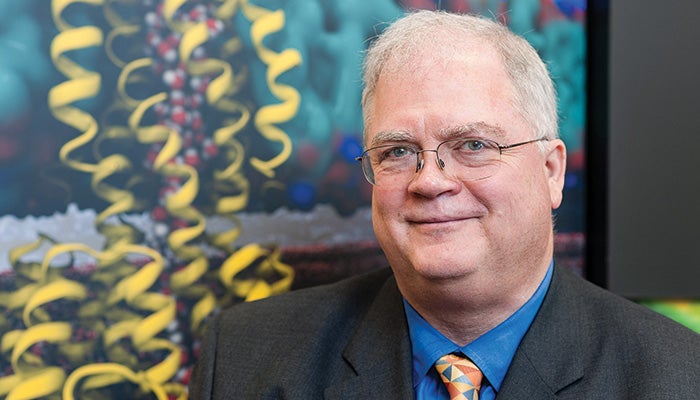Curt Breneman has been named dean of the School of Science. The appointment is effective January 1, 2015.
Breneman has served as head of the university’s Department of Chemistry and Chemical Biology since 2010.

Curt Breneman
“Dr. Breneman has a distinguished record of interdisciplinary research, entrepreneurial thought, and educational leadership,” said President Shirley Ann Jackson. “I am delighted to make this appointment. He has passion for all aspects of science and technology that will create a heightened level of energy and collaboration at Rensselaer and the School of Science. His contributions and leadership will further our vision of The New Polytechnic, which is enabled by The Rensselaer Plan 2024. ”
“It’s an exciting time for the Rensselaer School of Science, and I’m thrilled to lead our talented faculty, staff, and students in changing the world through innovation and exploration,” Breneman said. “We are a dedicated and diverse community of scholars committed to achieving the full promise of Rensselaer by reaching across boundaries to apply science to the common purposes of life.”
Breneman’s research is in the field of computational chemistry and predictive cheminformatics, with emphasis on both computational drug discovery methodology and materials informatics methods. His materials informatics work led to his appointment as an adviser to the White House Office of Science and Technology Policy/National Institute of Standards in Technology Materials Genome Initiative program.
He joined the School of Science at Rensselaer in 1989, was promoted to associate professor in 1996, and to full professor in 2002. He was named acting head of the Department of Chemistry and Chemical Biology in 2010, and appointed as department head in 2012. Breneman was appointed acting dean of the School of Science in June 2014.
Breneman has led the Rensselaer Exploratory Center for Cheminformatics Research (RECCR) during the past nine years. He is the author of more than 100 journal articles, 16 book chapters, and numerous refereed conference proceedings, and holds a patent on his molecular property descriptor technology (“PEST”), which has been licensed by several major pharmaceutical companies. His “RS-Predictor” drug metabolism method is currently in use across the drug discovery industry, and his “YAMS” materials informatics software has been supported by the Office of Naval Research and licensed by a major aerospace company. Breneman’s “CHELPG” atomic charge algorithm was used to parameterize several major molecular force fields and is an integral part of the Gaussian series of quantum mechanical software, which is used by thousands of universities and companies worldwide.
Breneman is a fellow of the American Chemical Society (ACS) and served the ACS Division of Computers in Chemistry as both treasurer and fundraiser for 10 years, and then as chair of the division in 2010.
Breneman earned a bachelor’s degree in chemistry from UCLA and a doctoral degree from the University of California at Santa Barbara for his work in physical organic chemistry.


